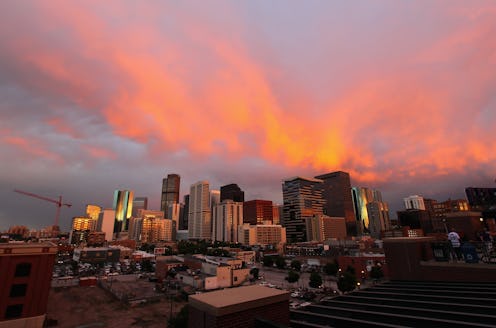News
How Electors In Colorado Want To Change The Vote
On Monday, the first hearing of its kind will take place in Denver, as two Colorado electors seek to challenge the outcome of the November presidential election. The electors, who are both reportedly Democrat, want to set a precedent that can start a chain reaction among other members of the Electoral College. If they're successful, the Colorado Electoral College lawsuit could give faithless electors and concerned Americans new hope after a bleak election — but that's a big "if."
According to The Colorado Independent, former State Sen. Polly Baca and math teacher Bob Nemanich are suing the state of Colorado for the right to cast their electoral vote for a candidate other than the state's winner, Hillary Clinton. Although they're both Democrats in a state that turned blue on Election Day, the pair of electors reportedly wants to stop state officials from blocking electoral votes cast for a candidate who didn't win the state's majority in November. If a federal judge in Colorado rules that electors can vote for whichever candidate they choose, then there's the opportunity for electors in other states to do the same. Basically, Baca and Nemanich could pave the way for so-called "faithless electors," or those who don't vote for their state's winning candidate, to block Donald Trump from becoming president.
The federal judge they'll need to convince is U.S. District Court Judge Wiley Daniel. Daniel will first hear the case on Monday afternoon in Denver. The state officials they're trying to stop are Gov. John Hickenlooper, Attorney General Cynthia Coffman, and Secretary of State Wayne Williams, all three of whom are named as defendants in the case. Coffman and Williams, who are both Republican, have asked the court to deny the electors' request and to uphold the law as it stands. Currently, Colorado electors who don't vote for the state's majority candidate are removed from their role and replaced with a new elector.
If the lawsuit seems like a game-ending Hail Mary, that's because it probably is. The suit will have to move quickly to have any impact, as Colorado electors are scheduled to officially cast their votes in a ceremony on Dec. 19. That's exactly one week after the initial hearing in Baca and Nemanich's case on Monday. Not to mention, Dec. 19 is the official meeting day for electors across the country, not just in Colorado. Electoral votes must be received by the Senate by Dec. 28 in order to be counted. That doesn't give faithless electors in Colorado or elsewhere much time to change the letter of the law.
